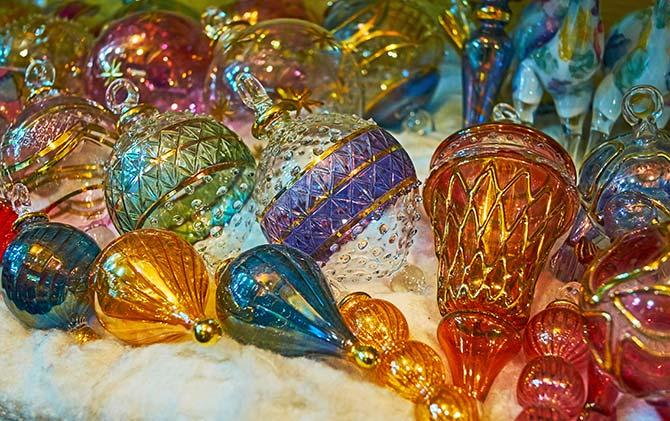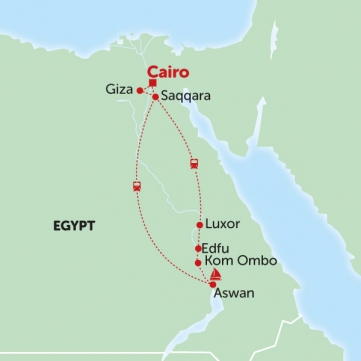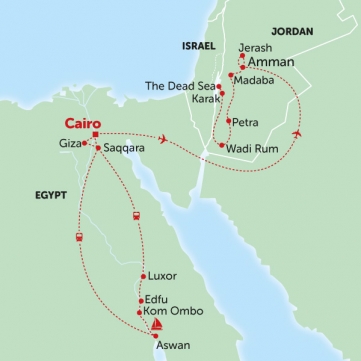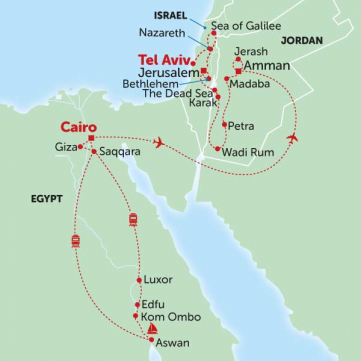Book NOW for $1 £1 €1 • Flexible Payments • No Change Fees • Private Departures Available
- Home >>
- Best time to visit Egypt
The weather
in Egypt
The weather is a crucial factor when planning any travel. With its desert climate, Egypt is typically hot, sunny and dry with little rainfall. Egypt’s seasons are similar to Europe and North America. Summer months are between June and August and winter from November to January. Winters will be seen as mild for those used to Northern hemisphere weather, though it can be as cool as 10 degrees celsius at night. The day time temperature in the summer can be 30 degrees in Cairo and as high as 50 degrees in the desert, even along the Nile.
Autumn (fall) brings the most popular weather, with temperatures typically no higher than 30 degrees celsius and reduced humidity. Spring also brings moderate temperatures, but also ushers in the desert winds. Known as khamaseen, this south/south westerly wind whips across the desert and can bring dust storms and sudden temperature spikes. A quick rule of thumb is that temperatures will rise the further south you travel and humidity can be marked, especially close to the Nile delta.
Did you know?
Aswan in Egypt is the third sunniest place in the world!

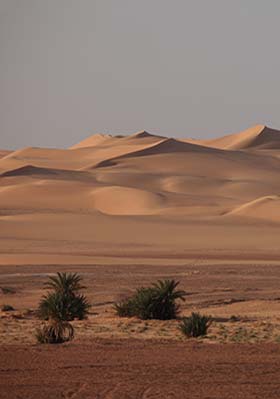
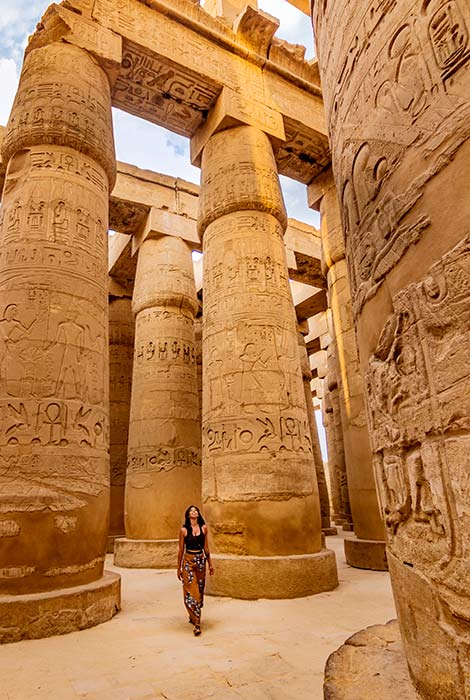
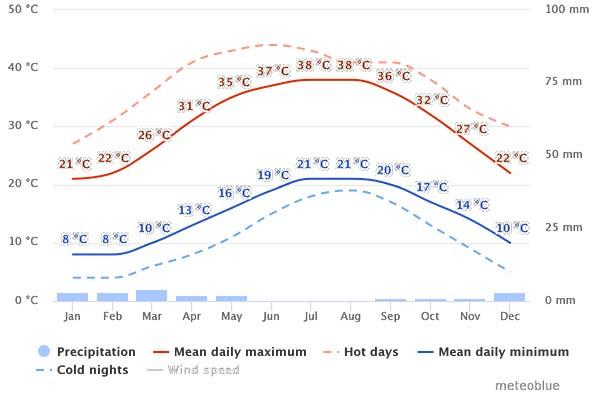
Best time to visit Egypt
Choosing the best time to visit Egypt is a matter of personal choice, depending on your budget and personal schedule.
The hottest months are June to August. You may bag a bargain with your flights, but be prepared for strong sunshine and lots of it.
If you are looking for sunny skies without the intense heat, then March to mid May and September to November may suit. If you prefer cooler days and colder nights, you may prefer to travel between October and April.
Festivals & events in Egypt
Ramadan
(May 5 - June 3)
The Muslim holy month of Ramadan is widely celebrated by Egypt’s majority Sunni Muslim population. Whilst fasting is obligatory for Muslims, visitors and tourists are not expected to fast during Ramadan. At the end of the day, you will find a festival atmosphere as eating and drinking resume with Iftar (breaking the fast). Ramadan ends with Eid al-Fitr, where the streets and market places will come alive with celebrations. Look out for the beautiful and decorative famous, beautiful lanterns of all shapes and sizes that are used to decorate homes, cafés, and mosques.
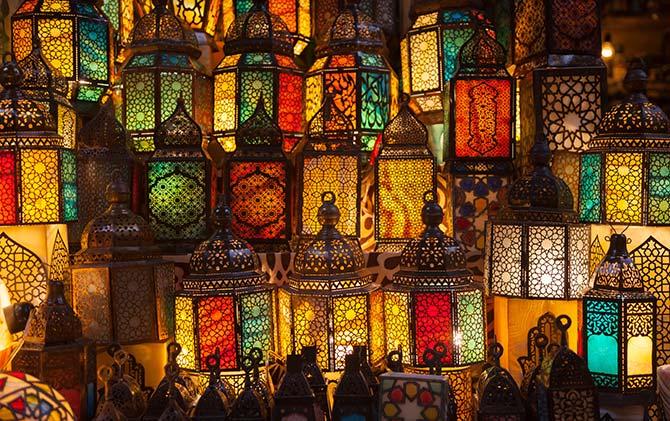
Leylet en Nuktah
(June 17)
The cults of ancient Egyptian gods were marked with numerous festivals over the solar year and some are still celebrated today. Such as Leylet en Nuktah, which celebrates the annual return of the flood waters of the Nile. In the time of the Pharaohs, beautiful maidens were sacrificed to the river gods. The only things sacrificed today are diets, as people feast along the river banks.
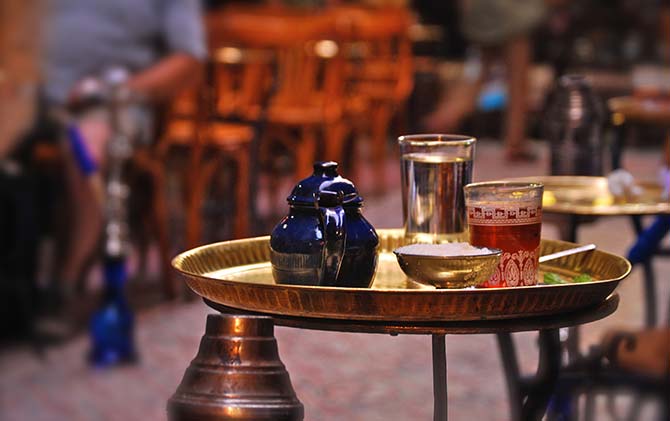
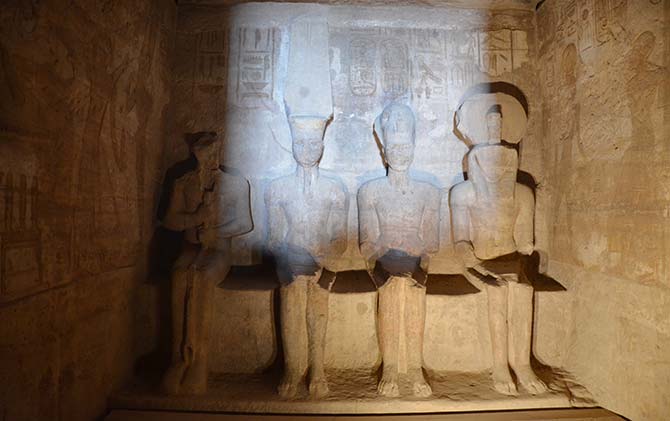
Sun Festival
(February 22 & October 22)
The Sun Festival at Abu Simbel is another ancient festival that is still celebrated. Twice a year, on the 22nd February and 22nd October, the rising sun shines through the entrance corridor of the Abu Simbel temple and illuminates three of the four statues at the end of the passage, leaving Ptah, the God of Darkness or the Underworld, in shadow.
The Uprising of 2011
(January 25)
As well as continuing to observe its ancient celebrations, today's Egyptians also celebrate their more recent history recognising the country’s long struggle for freedom. Among them are Labour day in May, Revolution days in January and July and The Uprising of 2011 celebrated in June.
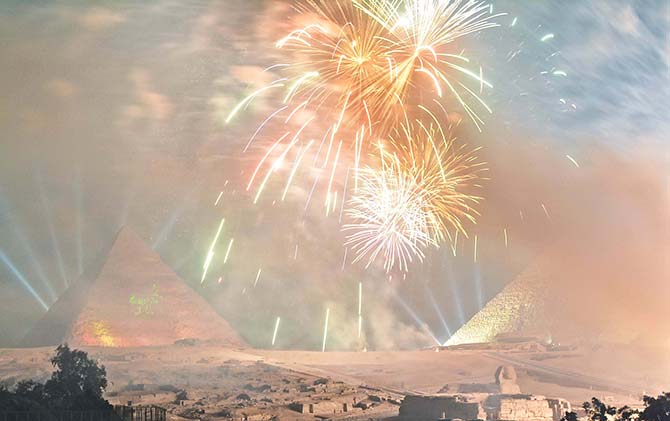
Other public holidays to be aware of when planning your trip to Egypt
- Coptic Christmas Day - Jan 7
- Revolution Day - Jan 25
- Coptic Easter Sunday - April 28
- Sinai Liberation Day - April 25
- Sham El Nessim - April 28
- Labour Day - May 1
- End of Ramadan - Jun 5-7
- Revolution Day - June 30
- Revolution Day - July 23
- Arafat Day - Aug 11
- Eid Al Adha Holiday - 13-15
- El Hijra - Sep 1
- Armed Forces Day - Oct 6
- Moulid El Nabi - Nov 10
Featured Tours



